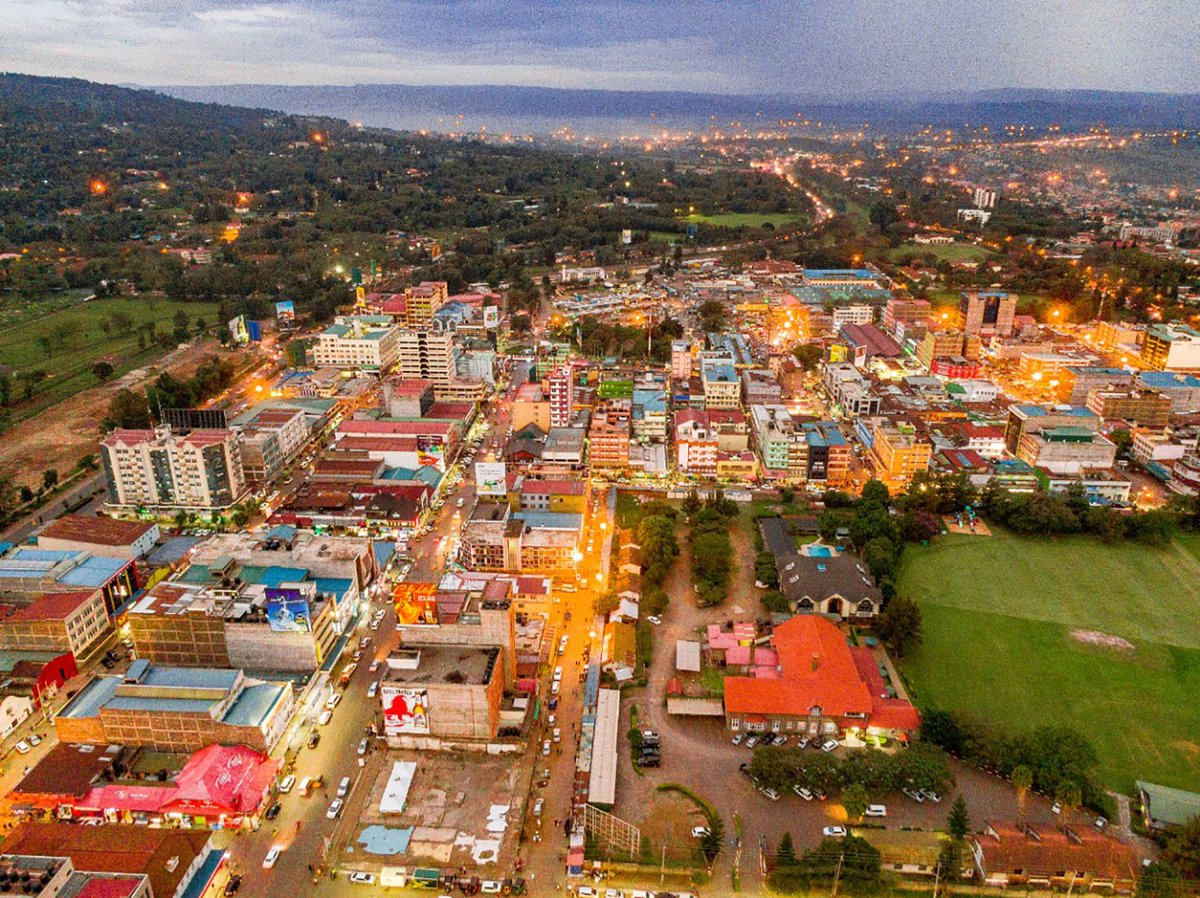Located in the heart of Kitui County, Kitui Town is a charming destination that exudes warmth and a welcoming atmosphere. With its rich cultural heritage and friendly locals, this vibrant town offers a unique experience for visitors. From exploring the bustling markets teeming with colorful wares to immersing yourself in the traditional music and dance performances, Kitui Town has something for everyone. Whether you’re interested in history, architecture, or simply soaking up the local charm, Kitui Town promises to captivate your senses and leave you with unforgettable memories.
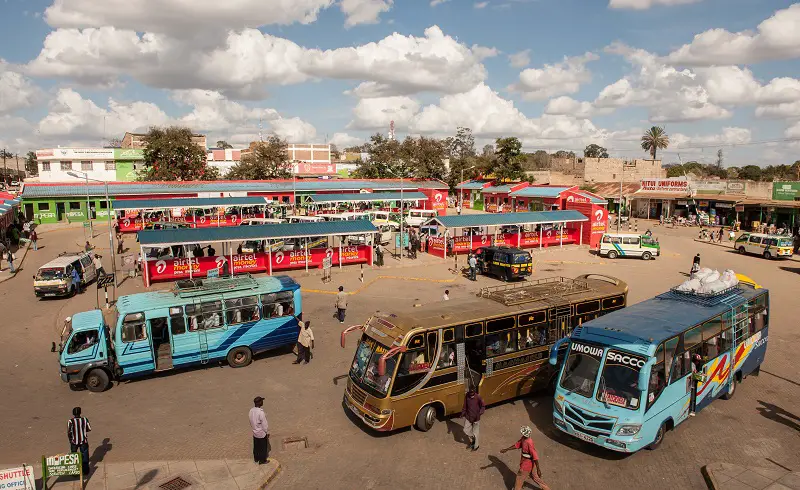
Geography
Location
Kitui Town is located in the eastern part of Kenya, approximately 180 kilometers east of Nairobi, the capital city. Nestled in Kitui County, it is situated at the foothills of the scenic Ithookwe Hills. The town is surrounded by vast plains with expansive views of the savannah and undulating landscapes. Its strategic location makes it a gateway to other major towns in the region, such as Mwingi and Machakos.
Climate
The climate in Kitui Town is characterized by two distinct seasons – the dry season and the rainy season. The dry season, which runs from January to March and July to September, is hot and dusty with temperatures averaging around 30 degrees Celsius. During this time, residents often rely on water storage and conservation methods. The rainy season, from April to June and October to December, brings relief from the scorching sun with moderate temperatures and refreshing showers. It is advised for visitors to carry lightweight clothing and sun protection essentials when exploring Kitui Town.
History
Early Settlement
Kitui Town has a rich history that dates back centuries. It was initially occupied by the Agĩkũyũ people, who were predominantly farmers. The town’s fertile soils and proximity to various water sources made it an attractive location for settlements. The early settlers thrived in agriculture and small-scale trading, creating a sense of community and prosperity.
Colonization
During the colonial era, Kitui Town experienced significant changes. It became a trading center for European settlers and local communities, facilitating the exchange of goods and services. The colonial administration introduced new technologies and infrastructures, which revolutionized the agricultural sector. This period marked the beginning of modernization in Kitui Town, as it grew into a bustling hub of economic activity.
Independence
As Kenya gained independence in 1963, Kitui Town was poised for further development. The town became the administrative center of newly formed Kitui District, enabling it to play a vital role in regional governance and decision-making processes. The newfound self-governance allowed the residents to actively participate in shaping the town’s future.
Recent Developments
In recent years, Kitui Town has witnessed rapid growth and development in various sectors. Infrastructure improvements, including road networks and utilities, have enhanced connectivity and improved the quality of life for its residents. The establishment of new educational institutions and healthcare facilities has also contributed to the town’s progress. Kitui Town continues to strive for sustainable development, aiming to create a vibrant and inclusive community for its diverse population.
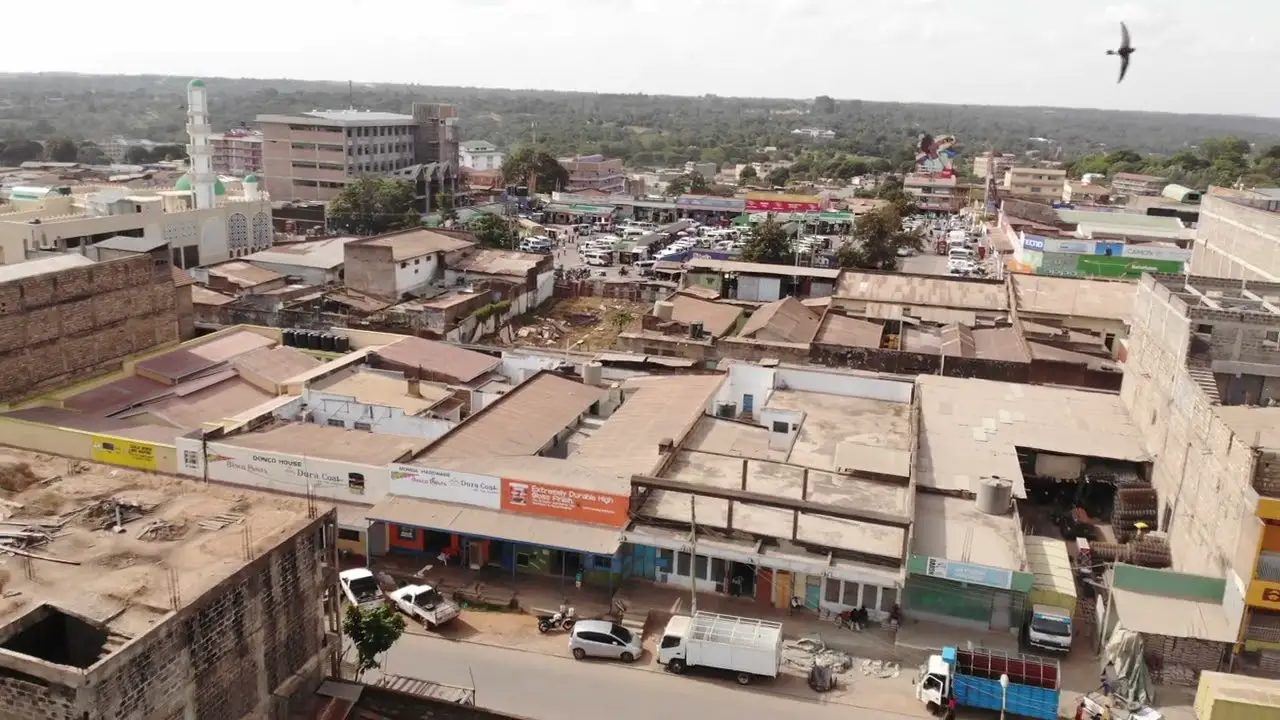
Demographics
Population
Kitui Town has experienced a steady increase in population over the years. The last census recorded a population of approximately 150,000 residents, making it one of the largest towns in the region. The population is projected to continue growing as more people are attracted to the town’s emerging opportunities and favorable living conditions.
Ethnicity
Kitui Town is a melting pot of different ethnicities. Although the majority of the population consists of the Kamba community, there is also a significant presence of other tribes such as the Luo, Kikuyu, and Meru. This cultural diversity brings a richness of traditions and customs, fostering a sense of unity and integration among the residents.
Religion
Various religions are practiced in Kitui Town, reflecting its multicultural nature. Christianity, Islam, and African traditional religions are the main faiths observed by the residents. Places of worship can be found throughout the town, serving as centers for spiritual guidance and community gatherings.
Languages
The primary language spoken in Kitui Town is Kamba, which is widely understood and used for daily communication. However, due to the diverse population, other languages such as Swahili and English are also spoken and understood by many residents. This linguistic diversity contributes to the cultural tapestry of the town and promotes harmonious coexistence among the different communities.
Economy
Agriculture
Agriculture forms a crucial part of Kitui Town’s economy. The rich soil and favorable climate support the growth of various crops, including maize, beans, millet, and vegetables. Farmers employ both traditional and modern farming techniques, with some embracing sustainable practices to preserve the environment. Agriculture not only provides food security for the town but also contributes to the income generation and employment opportunities for the residents.
Manufacturing
Kitui Town has a blossoming manufacturing sector, with a focus on value addition to agricultural produce. Local factories process agricultural products such as grains, fruits, and vegetables into finished goods such as flour, juices, and canned products. This enables the town to tap into the larger national and international markets, boosting economic growth and creating employment opportunities.
Services
The service industry plays a vital role in Kitui Town’s economy. Businesses in this sector offer a wide range of services, including healthcare, education, hospitality, finance, and retail. The growth of the service industry has attracted investment and created job opportunities for the residents, making Kitui Town a vibrant commercial center.
Tourism
Kitui Town is gradually becoming a tourist destination, thanks to its unique attractions and cultural heritage. The town’s natural beauty, including the surrounding landscapes, springs, and hills, has captivated the interest of both domestic and international visitors. Tourists can also explore Kitui Museum, which showcases the history and cultural artifacts of the region. The tourism sector is a promising avenue for economic diversification and income generation for the town.
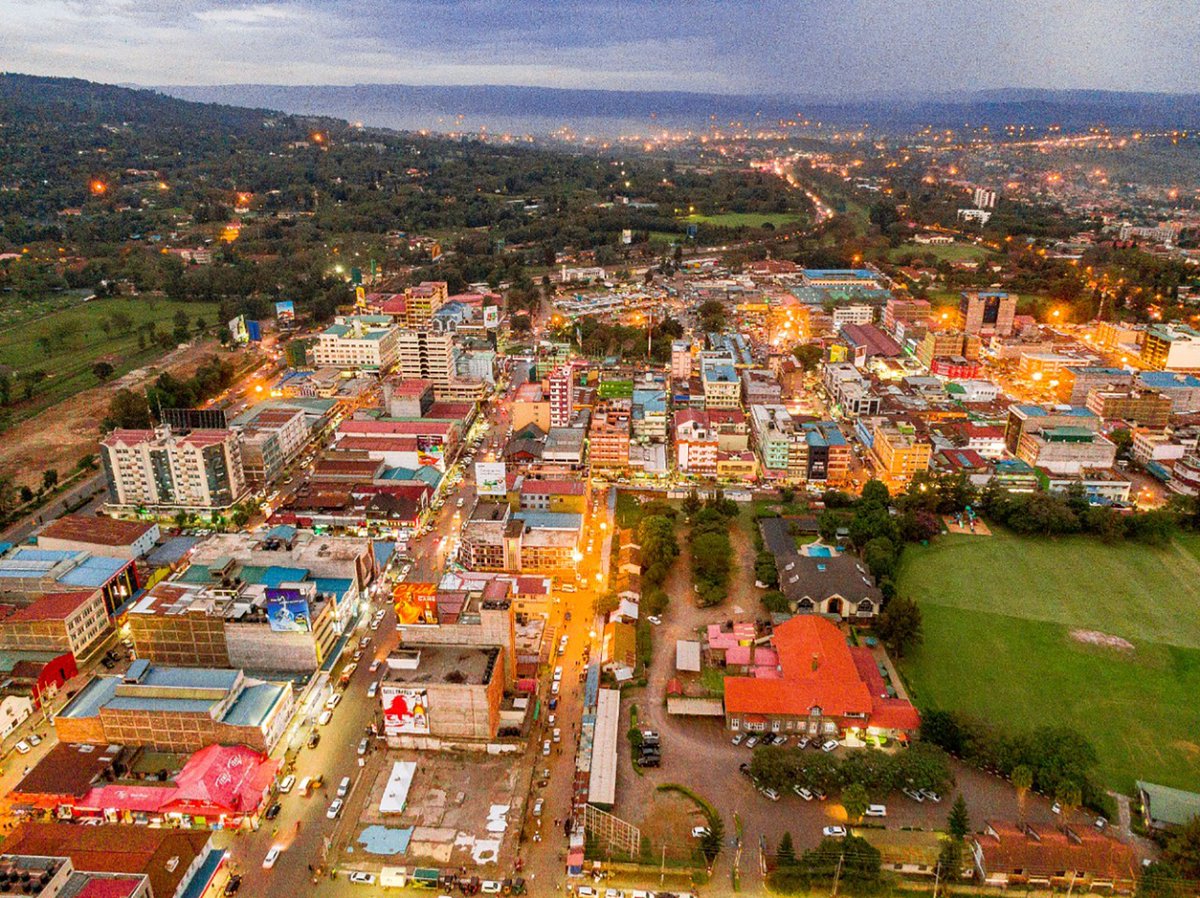
Infrastructure
Transportation
Kitui Town boasts a well-developed transportation network that facilitates smooth movement of goods and people within and beyond its borders. The town is connected to major cities and towns in Kenya through a network of well-maintained roads, allowing for easy access and efficient transportation. Public transportation, including buses and matatus (minibusses), provide affordable and convenient commuting options for both residents and visitors.
Utilities
The availability of utilities is essential for the well-being of any town, and Kitui Town is no exception. The town has a reliable supply of electricity and water, ensuring that residents have access to these essential resources. The local government continues to invest in infrastructure to improve utility services and meet the growing demands of the expanding population.
Educational Institutions
Education is highly valued in Kitui Town, as evidenced by the presence of numerous educational institutions. From primary schools to tertiary institutions, the town offers a wide range of educational opportunities for its residents. These institutions provide quality education and aim to equip students with the necessary skills to succeed in various fields.
Healthcare Facilities
The healthcare sector in Kitui Town has seen significant improvements in recent years. The town is equipped with modern healthcare facilities, including hospitals, clinics, and dispensaries, offering a range of medical services to residents. The healthcare professionals in these facilities are dedicated to providing quality healthcare and ensuring the well-being of the community.
Culture
Traditions and Customs
The residents of Kitui Town take pride in their cultural heritage and uphold various traditions and customs. These traditions are passed down through generations and are celebrated during cultural festivals and ceremonies. The Kamba community, in particular, has rich customs that include song and dance, storytelling, and traditional attire. The diversity of cultures in the town promotes cultural exchange and understanding, fostering a sense of unity among its residents.
Music and Dance
Music and dance hold a special place in the hearts of Kitui Town’s residents. Traditional drumming and rhythmic dances, such as the Ndombolo and Kamba dances, are popular forms of artistic expression. Music festivals and performances are frequently held, showcasing the vibrant rhythms and melodies that resonate throughout the town. These cultural expressions contribute to the town’s lively atmosphere and are a source of entertainment for both locals and visitors.
Art and Crafts
The artistic talents of the residents are evident in the various art and crafts produced in Kitui Town. Skilled artisans create beautifully handcrafted items such as basketry, pottery, and wood carvings. These unique creations are not only artistic but also functional, serving as decorative pieces or practical household items. The art and crafts industry provides income-generating opportunities for local artisans, contributing to the overall economic growth of the town.
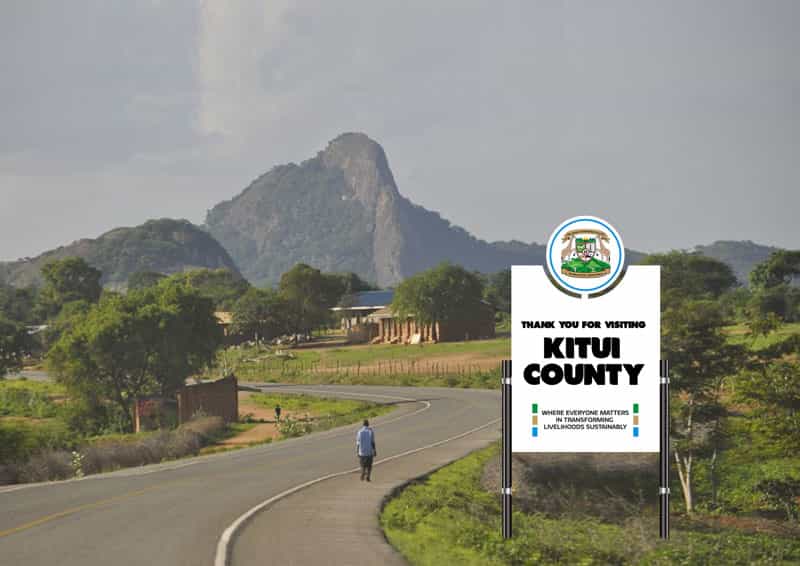
Tourist Attractions
Mwingi National Reserve
Located near Kitui Town, Mwingi National Reserve is a haven for nature enthusiasts. The reserve is home to a diverse range of wildlife, including elephants, zebras, giraffes, and numerous bird species. Visitors can embark on game drives and guided walks to discover the natural wonders of the reserve.
Mutomo Hill
Rising majestically on the horizon, Mutomo Hill is a picturesque landmark that offers panoramic views of the surrounding landscapes. Many visitors and locals alike make the trek to the top of the hill to admire the breathtaking scenery and enjoy the serenity it provides.
Nyanyeni Springs
Nyanyeni Springs is a collection of crystal-clear springs located a short distance from Kitui Town. The springs offer a refreshing escape from the heat, and visitors can enjoy picnicking, swimming, and relaxing in the tranquil ambiance of this natural attraction.
Kitui Museum
For those interested in delving into the history and culture of Kitui Town, a visit to Kitui Museum is a must. The museum houses a wide array of artifacts, photographs, and exhibits that showcase the town’s rich heritage. Visitors can gain insights into the traditions, crafts, and historical events that have shaped the town.
Events and Festivals
Mwingi Cultural Festival
The Mwingi Cultural Festival is a vibrant celebration of the diverse cultures that coexist in Kitui Town. This annual event brings together various communities, allowing them to showcase their traditional dances, music, food, and customs. The festival provides a platform for cultural exchange and promotes unity among the different ethnic groups.
Kite Festival
Every year, Kitui Town hosts a colorful Kite Festival, attracting kite enthusiasts from across the country. Participants showcase their creativity by designing and flying kites of various shapes, sizes, and colors. The festival is a joyful celebration of art, culture, and unity, as families and friends come together to enjoy the spectacle.
Kitui Trade Fair
The Kitui Trade Fair is a significant event on the town’s calendar, attracting both local and international exhibitors. The fair provides a platform for businesses to showcase their products and services, fostering economic growth and promoting trade within the region. Visitors can explore a wide range of exhibits, including agricultural produce, handicrafts, fashion, and technology.
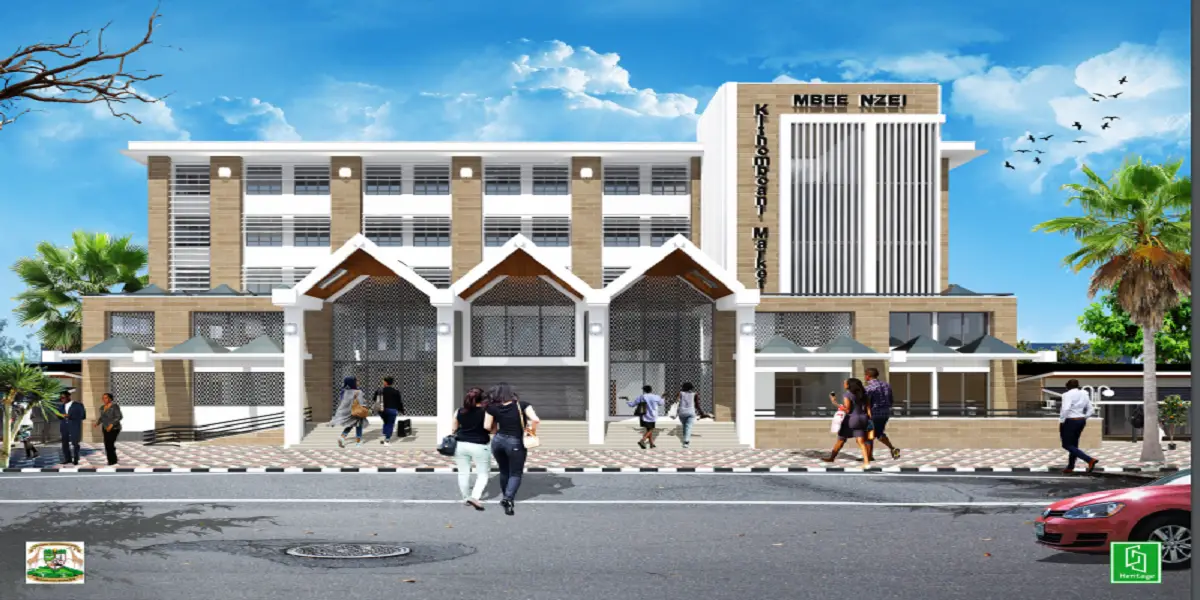
Sports and Recreation
Football
Football is a popular sport in Kitui Town, with numerous local teams and leagues. The town has well-maintained football pitches where residents and aspiring athletes can showcase their skills, fostering a sense of camaraderie and healthy competition.
Athletics
Kitui Town is known for producing talented athletes who have excelled in national and international competitions. The town’s natural landscapes and undulating terrains provide an ideal training ground for athletes in long-distance running, cross-country, and other athletics disciplines.
Cycling
Cycling has gained popularity as a recreational activity and a competitive sport in Kitui Town. Cyclists can navigate the town’s scenic routes and picturesque landscapes while enjoying the fresh air and exercise. The town is also home to various cycling clubs and hosts local cycling events.
Hiking
Outdoor enthusiasts and nature lovers can indulge in hiking expeditions in the beautiful surroundings of Kitui Town. The Ithookwe Hills and other nearby hills provide an ideal setting for adventure seekers to explore the wilderness and soak in the awe-inspiring views.
Transportation
Roads
Kitui Town is well-connected to the rest of Kenya through a network of well-maintained roadways. The main highway passing through the town links it to major cities and towns, allowing for easy access to neighboring regions. Public transportation, such as buses and matatus, provide affordable and convenient travel options for both residents and visitors.
Railway
Kitui Town is not directly served by a railway line but is located in proximity to the Nairobi-Mombasa railway line. The Mwingi and Machakos railway stations, located nearby, provide rail transport services, making it accessible for residents and businesses to connect to larger railway networks.
Airports
For air travel, Kitui Town is within a reasonable distance from the Jomo Kenyatta International Airport in Nairobi. The airport offers domestic and international flights, allowing residents of Kitui Town to easily travel to different destinations within and outside of Kenya.

